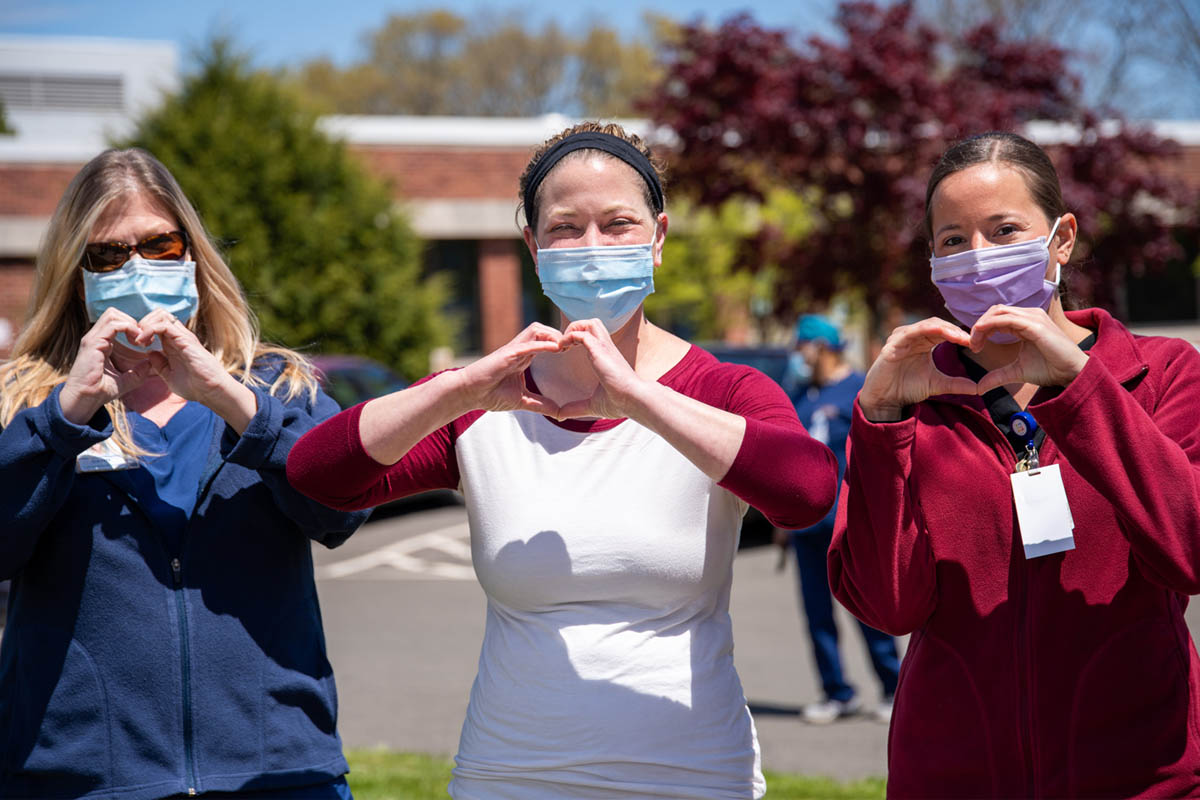Creating a More Just and Merciful World
What It Takes To Be A Great Nurse

National Nurses Month, which takes place in May, is the month to recognize the hard work and dedication of nurses.
Nurses Month is divided into four weekly focus areas, including self-care, recognition, professional development and community engagement. The month may also be a good time for nurses, new and experienced, to reflect on their careers. What do they enjoy most about being a nurse? What are the areas of growth they would like to pursue?
Nurses are known for caring, and there are natural talents and professional skills they can use to be successful. Here are practices that can help you to become a great nurse.
- Keep Learning
In nursing, lifelong learning is valuable. There are constant changes within the nursing and medical fields. New technologies and techniques are introduced all the time. Nurses should strive to stay up-to-date on these developments. Professional growth is crucial for self-development and providing patients with quality care. There are several opportunities to keep learning, including professional organizations, nursing publications and journals, conferences and certifications.
- Take a People-Centric Approach
Nurses are effective when they connect with patients as individuals—giving their undivided attention as you tend to them. A nurse’s job is about helping other people feel better. It is important to never lose focus of this and understand that patients want to be treated with respect and have their needs met. Juggling tasks while concentrating on patients may not be the easiest thing to do, but it is a critical nursing skill.
- Sharpen Your Communication Skills
Communication is a core nursing skill. Nurses regularly communicate with patients, physicians and fellow nurses. Nurses should possess communication skills that include active listening, non-verbal communication, feedback delivery and cultural awareness. Communication with patients helps build rapport and involves patients in decisions—increasing cooperation and patient satisfaction. Additionally, there are techniques nurses can use to communicate effectively with other healthcare professionals. For example, SBAR (Situation, Background, Assessment, Recommendation) is a mechanism used by members of a healthcare team that allows for a focused way to set expectations about a patient’s condition.
- Seek a Mentor
Mentorship is beneficial in preparing nurses for the real-world challenges they will encounter in their careers. New nurses, especially, benefit from having a mentor who can provide advice, guidance, motivation and support. Nurse mentors help mentees develop the nursing skills needed to excel in their practice. Mentors can be found at work, networking events or in professional organizations.
- Remember to Take Care of Yourself
To be the best at their jobs, nurses need to also take care of themselves. Self-care contributes to physical, mental and spiritual well-being. It reduces stress and enhances a nurse’s ability to provide care to others and therefore, improves the quality of care. Proper rest and relaxation, exercise and eating habits are critical for maintaining health and preventing burnout.
Become a Great Nurse
Nurses can always look for ways to become better at their jobs. National Nurses Month is just a reminder of the compassionate care and critical work they perform to help people.If you have a caregiving nature and an interest in a healthcare career, consider Carlow University’s Bachelor of Science in Nursing degree program. This nursing degree program is suited for a person committed to self-improvement and lifelong learning. Pursue a degree that puts you on the path to becoming a great nurse.
